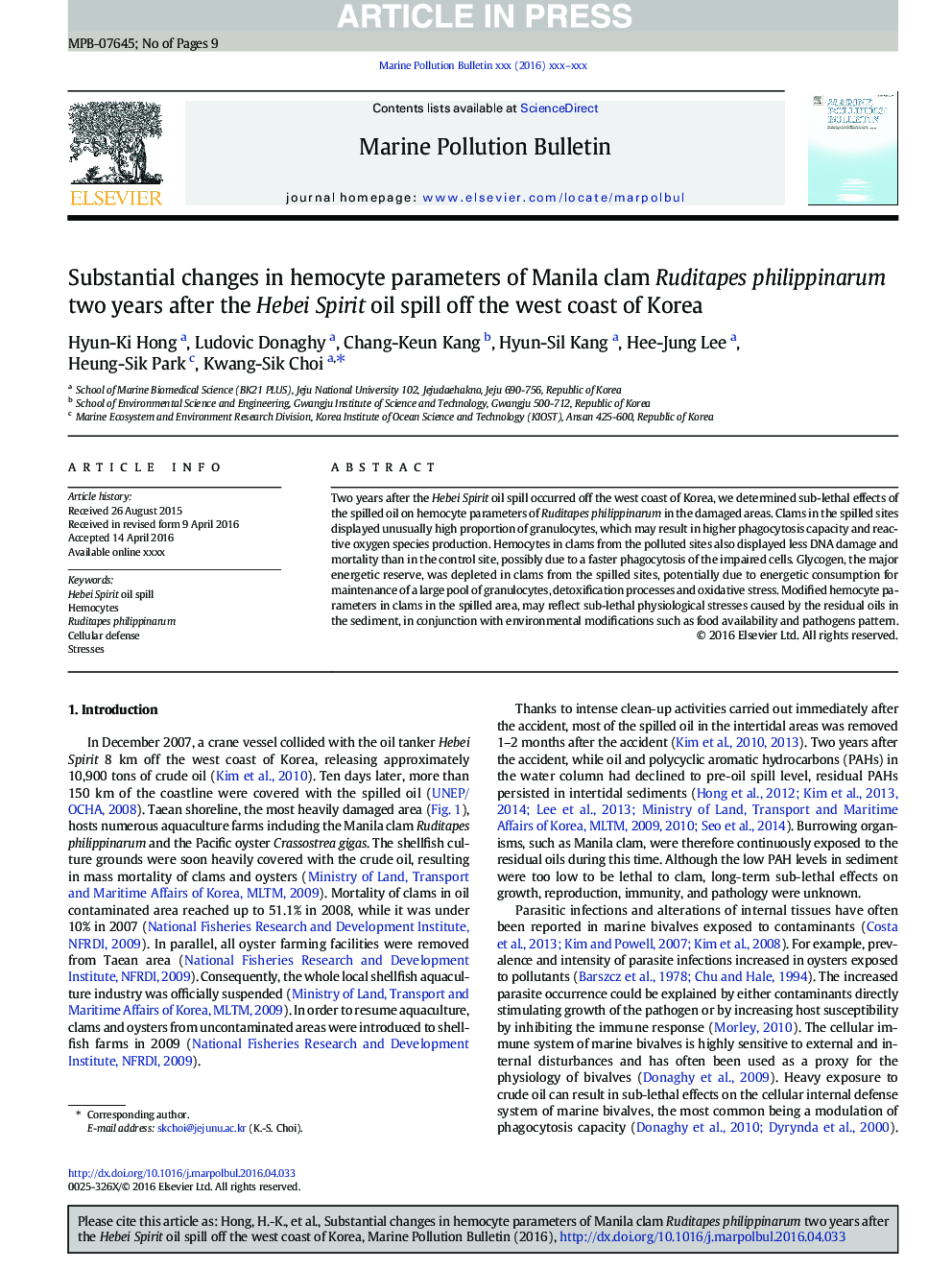| Article ID | Journal | Published Year | Pages | File Type |
|---|---|---|---|---|
| 6355945 | Marine Pollution Bulletin | 2016 | 9 Pages |
Abstract
Two years after the Hebei Spirit oil spill occurred off the west coast of Korea, we determined sub-lethal effects of the spilled oil on hemocyte parameters of Ruditapes philippinarum in the damaged areas. Clams in the spilled sites displayed unusually high proportion of granulocytes, which may result in higher phagocytosis capacity and reactive oxygen species production. Hemocytes in clams from the polluted sites also displayed less DNA damage and mortality than in the control site, possibly due to a faster phagocytosis of the impaired cells. Glycogen, the major energetic reserve, was depleted in clams from the spilled sites, potentially due to energetic consumption for maintenance of a large pool of granulocytes, detoxification processes and oxidative stress. Modified hemocyte parameters in clams in the spilled area, may reflect sub-lethal physiological stresses caused by the residual oils in the sediment, in conjunction with environmental modifications such as food availability and pathogens pattern.
Related Topics
Physical Sciences and Engineering
Earth and Planetary Sciences
Oceanography
Authors
Hyun-Ki Hong, Ludovic Donaghy, Chang-Keun Kang, Hyun-Sil Kang, Hee-Jung Lee, Heung-Sik Park, Kwang-Sik Choi,
